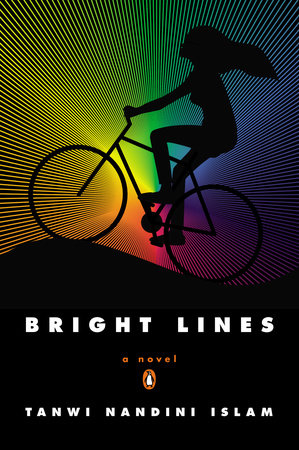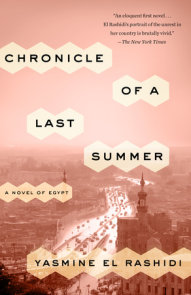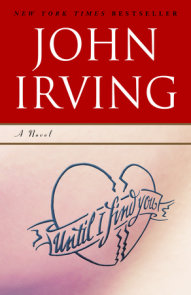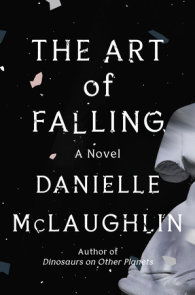READERS GUIDE
Introduction
“Each seed tells this story: Everything that happens is already written.”—from Bright Lines (p. 86)When Ella Anwar was three year old, her parents, Rezwan and Laila, were murdered. Ever since their death, Ella has seen fantastical visions: luminescent colors and shapes, scintillating butterflies, even miniature people. Shy, a bit awkward, and “rough as a prehistoric man” (p. 24), Ella doesn’t quite seem to fit in anywhere—not even with her adoptive parents, her aunt Hashi and uncle Anwar Saleem, or their gorgeous and outspoken daughter, Charu. Ella seeks refuge in the world of plants, throwing herself into the maintenance of Anwar’s garden in Brooklyn. Ella also doesn’t know what to make of her crush on her beautiful cousin, whose free spirit and overt sexuality Ella finds simultaneously alluring and irritating. But when Ella returns home from her sophomore year at Cornell, she finds that Charu has a secret guest stashed away in Ella’s old bedroom.
To Ella, her cousin’s best friend Maya is fascinating, a study in contradictions. She seems to be a devout Muslim, wearing a hijab and observing formal prayer, yet she will readily eat a ham sandwich and drink at a party. As Ella and Maya get closer, she learns that Maya is hiding at the Saleem household to escape her abusive father, who is well regarded in their Brooklyn neighborhood as an Islamic cleric. Over the course of the summer, Ella, Charu, and Maya forge a bond, riding their bikes around New York and exploring the city as they also explore their sexualities and identities.
Meanwhile, Uncle Anwar is having an adventurous summer of his own. He is the owner of a botanical apothecary, creating his own soaps, shampoos, salves, and other products, and like Ella, he reveres plants and their healing properties (especially marijuana). His relationship with Hashi is strained, and as their intimacy issues become more and more apparent, he finds himself fantasizing about his upstairs tenant, Ramona.
Anwar is haunted by visions of his beloved friend Rezwan and memories of their time as guerilla soldiers during the Bangladesh Liberation War, and he fears his overbearing and chauvinistic brother Aman, who comes to stay at the Saleem household. When the Saleem family is threatened by outside forces as well as inescapable secrets within the house, Anwar and Hashi take their children on a trip to their motherland—a trip that change the course of the girls’ lives forever.
As richly layered and lovingly crafted as a well-manicured garden or a bespoke perfume, Bright Lines introduces readers to a unique family that must learn to grow together and coexist even as they each develop into something beautiful on their own. Tanwi Nandini Islam’s stunning debut novel travels from the bustling storefronts of Atlantic Avenue in Brooklyn to the teeming street markets of Dhaka in Bangladesh, and is an essential new coming-of-age story of love and self-discovery.
Questions and Topics for Discussion
1. Bright Lines tells a very different story of what it’s like to grow up in New York than you would usually encounter in mainstream media. Do you now see the borough in a new light? Did you learn something about Brooklyn or New York that you didn’t know before?
2. What do you think is the cause of Ella’s visions, and are they a gift or a curse? Why doesn’t she seek help earlier?
3. What are your thoughts on Ella’s feelings for Charu? How does their relationship change when Maya enters the picture?
4. Throughout the novel, Anwar finds it difficult to communicate with the women in his life, especially Ella. Why do you think this is? In what ways does he show his love for Ella, Charu, and Hashi, and how do they differ from his open love of his best friend Rezwan?
5. As Ella comes to learn things about herself, we discover that her loved ones often know more about her thoughts and desires than she suspects they do. How does their knowledge of Ella help shape the person she becomes? Can you remember a moment when someone showed or told you something about yourself you’d never been able to articulate before?
6. What are Ella, Charu, and Maya’s differing relationships to religion? Does Maya change Ella and Charu’s perspective on Islam? How?
7. What is the significance of Rezwan’s head appearing to Ella and Anwar? How does his influence live on in their world?
8. What connections and relationships have Anwar and Hashi made in their Brooklyn community? How does this compare to the sense of belonging Ella and Charu come to find while visiting Bangladesh?
9. Why do you think Anwar felt so compelled to write the letter to Ella? Do you think he was a coward for not telling her everything sooner, or do you think he was justified in keeping his secrets as long as he did?
10. Earlier in the book, Anwar tells Ella: “Each seed tells this story: Everything that happens is already written (p. 86).” What do you think he meant by this and how is this sentiment evidenced in other moments in Bright Lines?
11. How would you describe the concept of swadhin (pp. 204–205)? How would things have been different for Ella if she’d encountered that idea sooner?
12. What are your feelings about the ending of the book? Were you surprised?




















